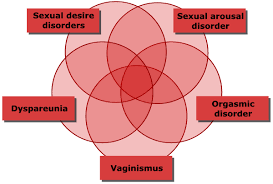 Naturopathic Sexology
Naturopathic Sexology
Dr. George Georgiou: Revolutionizing Naturopathic Sexology for Sexual Problem Resolution
Introduction
Dr. George Georgiou, a prominent naturopathic doctor from Cyprus, and a qualified doctoral-level Clinical Sexologist, has made significant strides in the field of naturopathic sexology. His innovative approach offers a new modality for helping individuals overcome sexual problems and achieve healthy, fulfilling sexual lives. Dr. Georgiou’s therapy is grounded in a holistic understanding of the interplay between physical, emotional, and psychological factors in sexual well-being.
Understanding Naturopathic Sexology
Naturopathic sexology, as developed by Dr. George Georgiou, takes a comprehensive and natural approach to addressing sexual problems. It recognizes that sexual health encompasses not only physical factors but also emotional, psychological, and relational aspects. This modality aims to uncover the underlying causes of sexual difficulties, promote balance, and restore sexual wellness using natural methods.
The Premise Behind Dr. Georgiou’s Therapy
- Holistic Assessment: Dr. Georgiou’s naturopathic sexology begins with a thorough assessment of an individual’s physical health, emotional well-being, lifestyle factors, and relationship dynamics. This holistic approach recognizes that sexual difficulties often stem from a combination of physiological, psychological, and relational factors. By conducting a comprehensive evaluation, Dr. Georgiou gains a deeper understanding of the root causes of sexual problems.
- Individualized Treatment: Based on the assessment, Dr. Georgiou develops personalized treatment plans tailored to each individual’s unique needs. The therapy may involve a combination of naturopathic approaches, including nutritional guidance, herbal remedies, lifestyle modifications, stress management techniques, counseling, and mindfulness practices. By addressing the specific factors contributing to sexual difficulties, the treatment is designed to restore balance and support sexual well-being.
- Emotional and Psychological Healing: Dr. Georgiou’s therapy recognizes the profound impact of emotional and psychological factors on sexual health. Trauma, stress, anxiety, body image issues, and relationship dynamics can all influence sexual function and satisfaction. Naturopathic sexology integrates counseling and supportive techniques to address emotional and psychological aspects, fostering healing, self-acceptance, and the development of healthy sexual attitudes.
- Hormonal and Physiological Balance: Hormonal imbalances, nutritional deficiencies, and other physiological factors can significantly affect sexual function. Dr. Georgiou’s therapy includes naturopathic interventions aimed at restoring hormonal balance, optimizing nutrient levels, and addressing underlying physiological issues. By promoting overall wellness and physiological harmony, this approach supports healthy sexual functioning.
- Lifestyle and Mind-Body Connection: Dr. Georgiou emphasizes the importance of lifestyle factors and the mind-body connection in sexual well-being. He encourages individuals to adopt healthy lifestyle habits, including regular exercise, stress management, and quality sleep, to enhance overall vitality. Additionally, mindfulness practices such as meditation, deep breathing, and body awareness exercises can cultivate present-moment awareness, reduce performance anxiety, and enhance sexual pleasure.
The Potential Benefits of Naturopathic Sexology
Dr. Georgiou’s naturopathic sexology modality offers potential benefits for individuals experiencing sexual difficulties, including:
- Improved Sexual Function: By addressing the underlying causes of sexual problems and promoting physiological and psychological balance, this therapy aims to improve sexual function and satisfaction.
- Enhanced Emotional Well-being: Naturopathic sexology recognizes the impact of emotional factors on sexual health. By addressing emotional wounds, reducing anxiety, and promoting self-acceptance, individuals can experience improved emotional well-being and a positive outlook on their sexual lives.
- Holistic Approach: This modality considers the interconnectedness of physical, emotional, and psychological factors in sexual health. By adopting a holistic perspective, individuals can achieve a comprehensive understanding of their sexual difficulties and work towards holistic healing and growth.
- Natural and Sustainable Solutions: Naturopathic sexology utilizes naturopathic and natural methods and interventions, aiming to restore balance and optimize overall health. This approach often focuses on sustainable lifestyle changes, promoting long-term sexual well-being.
Conclusion
Dr. George Georgiou’s pioneering work in naturopathic sexology offers a holistic and comprehensive approach to addressing sexual problems. By recognizing the interplay of physical, emotional, and psychological factors, his therapy provides individuals with the tools to restore balance, promote sexual well-being, and achieve fulfilling sexual lives. While further research is needed to validate and expand upon this innovative modality, Dr. Georgiou’s contributions offer hope and alternative solutions for individuals facing sexual difficulties.
Dr. Georgiou is a qualified Clinical Sexologist as well as a Naturopath and has developed a method for treating sexual dysfunctions that he has termed NATUROPATHIC SEXOLOGY, a completely new approach that is nowhere to be found on Google (try searching and you will be brought back to this site only). He has also developed a Diploma course in Naturopathic Sexology too.
Combining these two very powerful treatment methods, now known as Naturopathic Sexology, has helped to increase the probability of success, and the Center enjoys a very high success rate approaching 90% with the majority of sexual problems.
Emotional factors affecting sex include both interpersonal problems (such as marital/relationship problems, or lack of trust and open communication between partners) and psychological problems within the individual (depression, sexual fears or guilt, past sexual trauma, sexual disorders, and so on).
Physical factors include drugs (alcohol, nicotine, narcotics, stimulants, antihypertensives, antihistamines, and some psychotropic drugs); injuries to the back, problems with an enlarged prostate gland, problems with blood supply, nerve damage (as in spinal cord injuries); or disease (diabetic neuropathy, multiple sclerosis, tumors, and, rarely, tertiary syphilis); failure of various organ systems (such as the heart and lungs); endocrine disorders (thyroid, pituitary, or adrenal gland problems); hormonal deficiencies (low testosterone, estrogen, or androgens); and some birth defects.
Sexual dysfunction disorders are generally classified into four categories: sexual desire disorders, sexual arousal disorders, orgasm disorders, and sexual pain disorders.
 1. Sexual desire disorders or decreased libido can be caused by a decrease in normal estrogen (in women) or testosterone (in both men and women) production. Other causes may be aging, fatigue, pregnancy, medications (such as the SSRIs) or psychiatric conditions, such as depression and anxiety. Loss of libido from SSRIs usually reverses after SSRIs are discontinued, but in some cases it does not. This has been called PSSD; however, this is not a classification that would be found in any current medical text.
1. Sexual desire disorders or decreased libido can be caused by a decrease in normal estrogen (in women) or testosterone (in both men and women) production. Other causes may be aging, fatigue, pregnancy, medications (such as the SSRIs) or psychiatric conditions, such as depression and anxiety. Loss of libido from SSRIs usually reverses after SSRIs are discontinued, but in some cases it does not. This has been called PSSD; however, this is not a classification that would be found in any current medical text.
2. Sexual arousal disorders were previously known as frigidity in women and impotence in men, though these have now been replaced with less judgmental terms. Impotence is now known as erectile dysfunction, and frigidity has been replaced with a number of terms describing specific problems with, for example, desire or arousal.
For both men and women, these conditions can manifest as an aversion to, and avoidance of, sexual contact with a partner. In men, there may be partial or complete failure to attain or maintain an erection, or a lack of sexual excitement and pleasure in sexual activity.
There may be medical causes to these disorders, such as decreased blood flow or lack of vaginal lubrication. Chronic disease can also contribute, as well as the nature of the relationship between the partners. As the success of sildenafil (Viagra) attests, most erectile disorders in men are primarily physical, not psychological conditions.
 3. Orgasm disorders are a persistent delay or absence of orgasm following a normal sexual excitement phase. The disorder can occur in both women and men. Again, the SSRI antidepressants are frequent culprits — these can delay the achievement of orgasm or eliminate it entirely. Premature ejaculation is also another commonly occuring problem.
3. Orgasm disorders are a persistent delay or absence of orgasm following a normal sexual excitement phase. The disorder can occur in both women and men. Again, the SSRI antidepressants are frequent culprits — these can delay the achievement of orgasm or eliminate it entirely. Premature ejaculation is also another commonly occuring problem.
4. Sexual pain disorders affect women almost exclusively and are known as dyspareunia (painful intercourse) and vaginismus (an involuntary spasm of the muscles of the vaginal wall that interferes with intercourse). Dyspareunia may be caused by insufficient lubrication (vaginal dryness) in women.
Poor lubrication may result from insufficient excitement and stimulation, or from hormonal changes caused by menopause, pregnancy, or breast-feeding. Irritation from contraceptive creams and foams can also cause dryness, as can fear and anxiety about sex.
It is unclear exactly what causes vaginismus, but it is thought that past sexual trauma (such as rape or abuse) may play a role. Another female sexual pain disorder is called vulvodynia or vulvar vestibulitis. In this condition, women experience burning pain during sex which seems to be related to problems with the skin in the vulvar and vaginal areas. The cause is unknown.
Sexual dysfunctions are more common in the early adult years, with the majority of people seeking care for such conditions during their late twenties through thirties. The incidence increases again in the geriatric population, typically with gradual onset of symptoms that are associated most commonly with medical causes of sexual dysfunction.
Sexual dysfunction is more common in people who abuse alcohol and drugs. It is also more likely in people suffering from diabetes and degenerative neurological disorders. Ongoing psychological problems, difficulty maintaining relationships or chronic disharmony with the current sexual partner can also interfere with sexual function.
Dr Georgiou has a Ph.D in Clinical Sexology and is also a Clinical Psychologist, Naturopath, and has two additional doctorates in Naturopathy and Alternative Medicine. He is a member of:
- Chartered Psychologist, UK, BPS (C.Psychol)
- Diplomate of the American Board of Sexology, USA (ABS)
- Registered Sex Therapist with ABS, USA
- The American College of Sexologists, USA (ACS)
- Fellow of the American Academy of Clinical Sexologists, USA (FAACS
- The General Council and Register of Naturopaths, UK (GCRN)
- The Institute of Biology, UK (MIBiol)
Videos to Watch:
Human Sexuality: What Do We Know?

Contact us or book an appointment now.


 Naturopathic Sexology
Naturopathic Sexology



